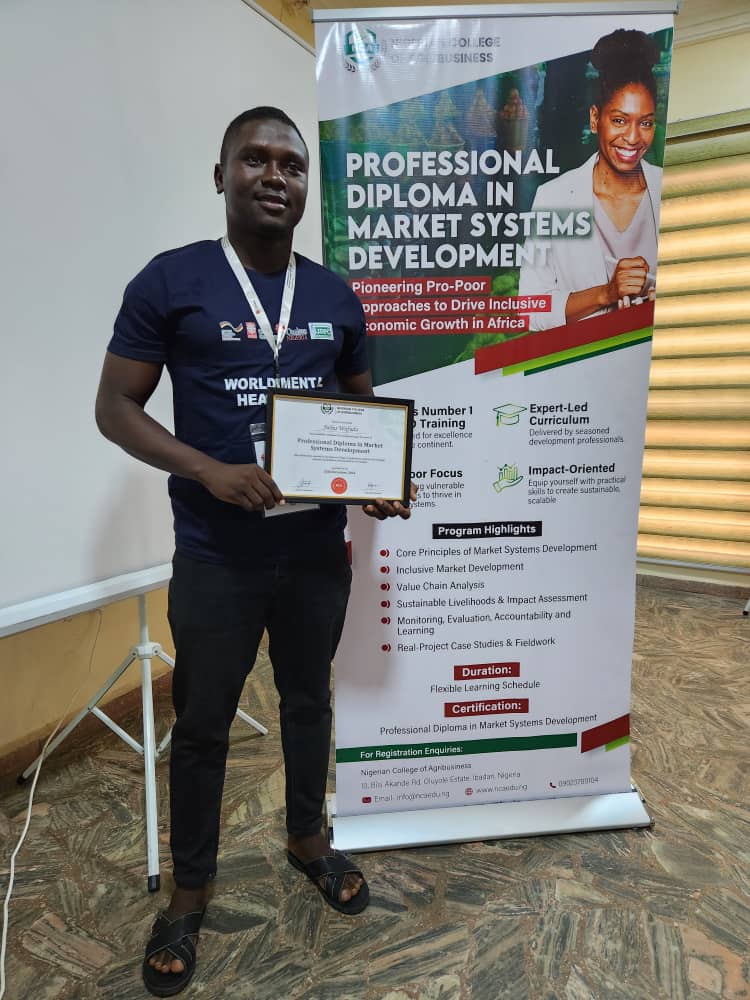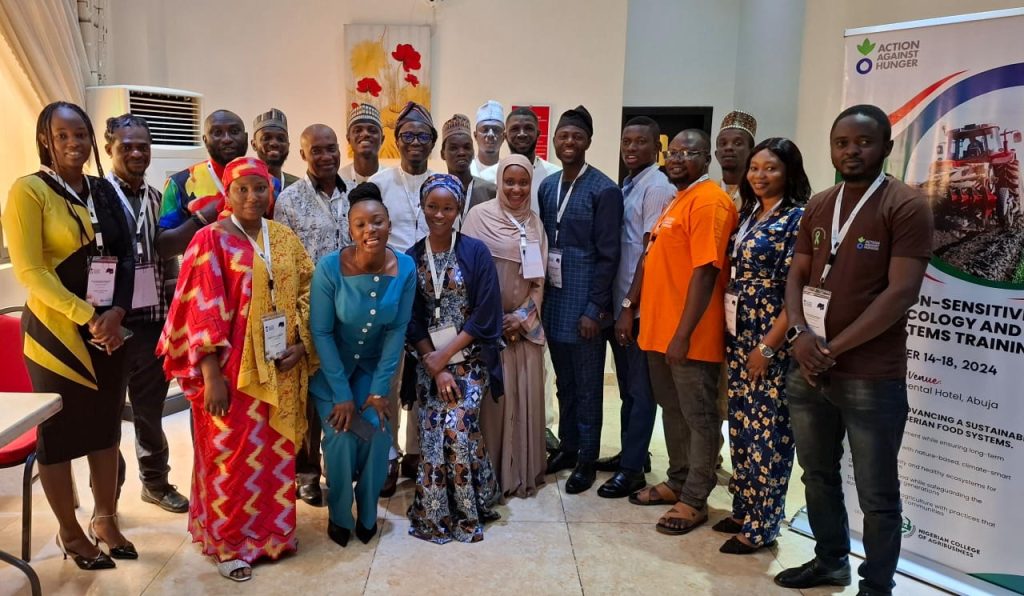Start Dates
Duration
Fees
Learning Activities
Revolutionize Africa’s Agriculture: Build Resilient, Sustainable, and Climate-Smart Food Systems
Agriculture is the backbone of Africa’s economy, but it is also one of the most vulnerable sectors to the impacts of climate change. As rising temperatures, unpredictable rainfall, and extreme weather events threaten food security, Africa needs innovative solutions that will sustain agriculture while protecting the environment. The Professional Diploma in Climate-Smart Agriculture and Sustainable Food Systems is designed to equip you with the knowledge, strategies, and practical skills to transform Africa’s agricultural landscape in a changing climate.
Indeed, Agriculture is at the heart of Africa’s response to climate change, and this diploma will place you at the forefront of this critical transformation. This program offers a ground-breaking approach to agriculture, focusing on resilience, sustainability, and climate adaptability. You will learn how to design and implement agricultural systems that not only withstand the pressures of climate change but also promote environmental stewardship, economic viability, and food security for future generations.

Lead the transformation of African farming by integrating climate-smart practices that boost productivity and preserve ecosystems.
Ensure resilient food systems that can feed Africa’s growing population despite the challenges posed by climate change.
Design profitable, sustainable agricultural models that balance productivity with climate action.
Foundations of Climate-Smart Agriculture(CSA)
This foundational module introduces the core principles of Climate-Smart Agriculture, a holistic approach designed to address food security and climate change. You will explore how CSA practices can increase productivity, enhance resilience, and reduce greenhouse gas emissions.
Actionable Insights:
Soil Health and Water Management for Resilient Agriculture
Healthy soils and efficient water use are critical for sustainable agriculture, particularly in Africa’s arid and semi-arid regions. This module focuses on building soil fertility and optimizing water management to support climate-resilient farming.
Actionable Insights:
Climate-Resilient Crop and Livestock Production Systems
In this module, you will explore how to adapt crop and livestock systems to withstand the impacts of climate change. Learn practical methods for improving the resilience of key food systems while ensuring high productivity and sustainable livelihoods for farmers.
Actionable Insights:
Sustainable Food Systems and Supply Chains
Building resilient and sustainable food systems requires transforming not only production but also processing, distribution, and consumption. This module focuses on designing sustainable food supply chains that minimize waste, reduce carbon emissions, and ensure equitable access to food.
Actionable Insights:
Policy, Advocacy and Financing for Climate-Smart Agriculture
Effective climate-smart agriculture requires supportive policies, advocacy, and innovative financing models. This module will provide you with the tools to navigate the policy landscape, advocate for sustainable agricultural practices, and access funding for climate-smart projects.
Actionable Insights:
Monitoring, Evaluating and Scaling Climate-Smart Agriculture Solutions
To drive large-scale change, climate-smart agricultural practices need to be measured, evaluated, and scaled across communities and regions. In this final module, you will learn how to design robust monitoring and evaluation frameworks, measure the impact of CSA initiatives, and scale successful practices.
Actionable Insights:

No other institution in Africa offers such a comprehensive approach to agribusiness and development sector education as the Nigerian College of Agribusiness. We provide a unique blend of academic rigor, practical expertise, and industry connections. Here, you will learn from experienced faculty members who are experts in their fields and deeply engaged with the latest advancements in their industries.
We leverage interdisciplinary knowledge and the latest research to enhance our programs, ensuring they are relevant and impactful. At NCA, you will continuously engage with thought leaders who are constantly shaping the dynamics of their industries and after graduation, you will be a life-long member of a vibrant alumni community that continually foster cross-disciplinary learning and networking.
STEP 1: Complete the Application for Admission Form for the course
STEP 2: A non-refundable application fee of N20,000 applies and will be deducted from the tuition upon enrollment. This is payable into
Zenith Bank
Account Name: Nigerian College of Agribusiness
Account Number: 1228461510
STEP 3: Attach receipt of Application fee with your highest academic credential and submit to: csa@ncaedu.ng
STEP 4: Upon successful evaluation of your application, you will receive your Admission Letter indicating acceptance into the program. The Letter will also contain details of enrollment into the Course.
Click on the link below to fill the application form for this course
Local: N450,000
International Students: $400
Get monthly marketing tips and exclusive discounts straight to your inbox

Our mission is to cultivate a vibrant, sustainable and profitable agribusiness sector that drives economic growth and social progress across Africa and beyond.
We are committed towards educating a new generation of agribusiness sector leaders that will transform the economic fortunes of the African continent
© NCAEDU 2023 All Rights Reserved.